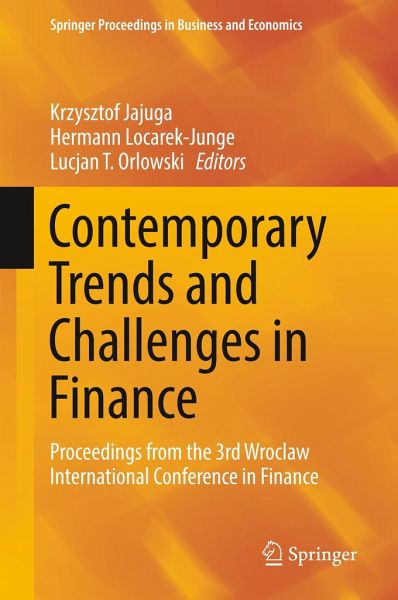
Contemporary Trends and Challenges in Finance
Proceedings from the 3rd Wroclaw International Conference in Finance
Herausgegeben: Jajuga, Krzysztof; Locarek-Junge, Hermann; Orlowski, Lucjan T.

PAYBACK Punkte
38 °P sammeln!
This volume includes a selection of the contributions presented at the Wroclaw conference in Finance, covering a wide range of topics in the area of finance. The articles reflect the extent, diversity and richness of research areas in the field. Discussing both fundamental and applied finance, it offers a detailed analysis of current financial-market problems including specifics of Polish and Central European markets. It also examines the results of advanced financial modeling. These proceedings are a valuable resource for researchers in universities and research and policy institutions, gradu...
This volume includes a selection of the contributions presented at the Wroclaw conference in Finance, covering a wide range of topics in the area of finance. The articles reflect the extent, diversity and richness of research areas in the field. Discussing both fundamental and applied finance, it offers a detailed analysis of current financial-market problems including specifics of Polish and Central European markets. It also examines the results of advanced financial modeling. These proceedings are a valuable resource for researchers in universities and research and policy institutions, graduate students and practitioners in economics, finance and international economics in both private and government institutions.














